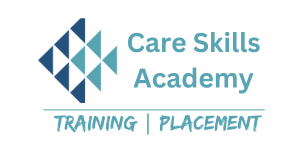In today’s technology-driven world, almost every device we use relies on electronic circuits. From smartphones and computers to home appliances and automobiles, Printed Circuit Boards (PCBs) are the backbone of modern electronics. When these intricate circuit boards malfunction, it can lead to expensive repairs or the need for complete replacement. However, with specialized skills in PCB repair, one can save both time and money, making PCB repairing not only a valuable technical skill but also a lucrative career opportunity.
If you’re curious about what PCB repair is and how you can become an expert in this field, this blog will guide you through the essentials.
What is PCB Repair?
A Printed Circuit Board (PCB) serves as the foundation of most electronic devices. It holds and connects various electronic components like resistors, capacitors, and transistors, allowing them to function as intended. When a PCB is damaged due to overheating, physical breakage, or component failure, the entire device may malfunction.
PCB repair involves identifying and rectifying these issues through advanced techniques such as:
- Component Identification and Replacement: Identifying the faulty components and replacing them with new ones.
- Soldering: Properly soldering and desoldering components on the board.
- Tracing Circuit Failures: Using tools like multimeters and oscilloscopes to locate the problem area.
- Cleaning and Refurbishing: Removing corrosion and cleaning the PCB surface for smooth operation.
Why Learn PCB Repair?
- High Demand for Skilled Technicians: As the use of electronics continues to grow, so does the demand for skilled PCB technicians. Industries ranging from consumer electronics to telecommunications, aerospace, and automotive need professionals who can troubleshoot and repair faulty PCBs.
- Cost-Efficiency: Repairing a damaged PCB is often far cheaper than replacing an entire device. Skilled PCB repair technicians can offer cost-effective solutions, which appeals to businesses and consumers alike.
- Wide Range of Applications: PCB repair skills can be applied across various industries. Whether it’s fixing smartphones, laptops, or industrial machines, you’ll find that the skills you learn are incredibly versatile and adaptable.
- Career Growth: Mastering PCB repair opens doors to specialized roles in electronics maintenance, engineering, and manufacturing. The knowledge gained can even lead to entrepreneurship, where you can start your own PCB repair business.
What Will You Learn in a PCB Repairing Course?
PCB repairing courses are designed to take both beginners and professionals through a structured curriculum. Some key areas covered include:
- Basics of Electronics and PCB Structure: You will start by learning the fundamental principles of electronics and how components like resistors, capacitors, and diodes work. Understanding the anatomy of a PCB, including layers, tracks, and vias, is crucial.
- Soldering Techniques: Mastering the art of soldering is essential for repairing or replacing components. Courses cover both manual and hot-air soldering, focusing on precision and technique.
- Troubleshooting and Diagnostics: You’ll be trained in identifying common PCB issues using tools like multimeters, logic analyzers, and oscilloscopes. The course will teach you how to detect short circuits, open circuits, and component failures.
- Advanced Repairs: Beyond basic component replacement, some courses also delve into repairing multilayer PCBs, which are commonly used in advanced electronics like computers and smartphones.
- Safety Practices: Handling PCBs and electronic components safely is a crucial part of the course. You’ll learn how to protect both the devices and yourself during repair processes.
Career Opportunities
Upon completing a PCB repairing course, you can explore a range of job opportunities. These include:
- PCB Technician: Diagnosing and repairing PCBs in various devices.
- Electronics Engineer: Working in industries to design, test, and maintain electronic systems.
- Self-Employment: Start your own business offering PCB repair services to individuals and companies.
Conclusion
Learning PCB repair is not just about fixing circuit boards; it’s about mastering a skill that has widespread application in a variety of industries. As technology evolves, the demand for skilled PCB repair technicians will only increase, offering you the chance to build a career that is both rewarding and future-proof.
Whether you’re an aspiring technician or an electronics enthusiast, a PCB repair course can be your gateway to mastering the technology that powers our modern world.

